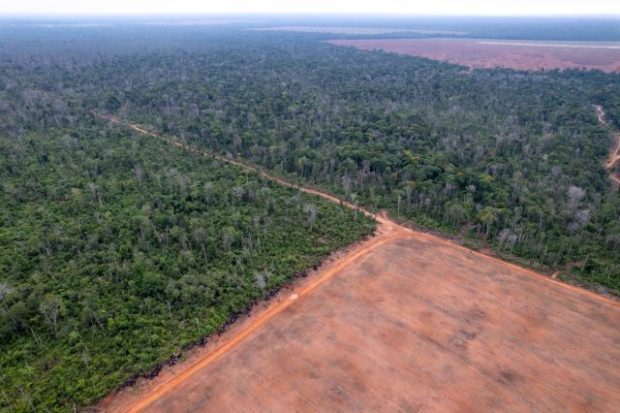
News and Media

Amazon’s Carbon Absorption Declines Amid Record CO₂ Rise

Supported by the National Centre for Earth Observation
An urgent study, spearheaded by Dr. Liang Feng and Professor Paul Palmer of the National Centre for Earth Observation at the University of Edinburgh, has revealed why global atmospheric CO2 levels rose dramatically in 2023 and rose at a record rate in 2024.
Using cutting-edge data from NASA’s Orbiting Carbon Observatory-2 (OCO-2), Feng and Palmer pinpointed a dramatic reduction in the Amazon rainforest’s capacity to absorb carbon. Satellite indicators—including reduced vegetation greenness and solar-induced fluorescence—confirmed that under the twin pressures of elevated temperatures and brutal drought, the Amazon basin’s photosynthetic activity is severely stunted.
Why is this important?
Just under 50% of human-driven emissions of CO2 remain in the atmosphere – the so-called airborne fraction that varies year to year. In other words, just over 50% of that CO2 is absorbed (more or less equally) by the land and the oceans.
Note these numbers are expressed as percentages. As human-driven emissions of CO2 have continued to increase in absolute terms so has the amount of carbon absorbed by the land and oceans.
Any reduced capability of plants to absorb carbon, temporary or otherwise, will result in more atmospheric CO2 being left in the atmosphere.
Our ability to meet climate targets relies, implicitly at least, on the continued operation of the nature’s absorption and storage of carbon. Anything that compromises these abilities will have impacts for Earth’s climate.
What now?
Their findings highlight the complex response of the tropical ecosystems to environmental change, reflecting differences in the sensitivity and vulnerability of plants to localised droughts and increasing surface temperature.
We urgently need to document how tropical ecosystems are changing, whether these changes compromise the future ability to absorb and store carbon, and whether prolonged drought over the Amazon will substantially delay any ecosystem recovery.
For more details: see the paper.
Share this article



Published by Tara Thompson
Communications and Engagement Manager
University of Leicester
Latest News and Events


